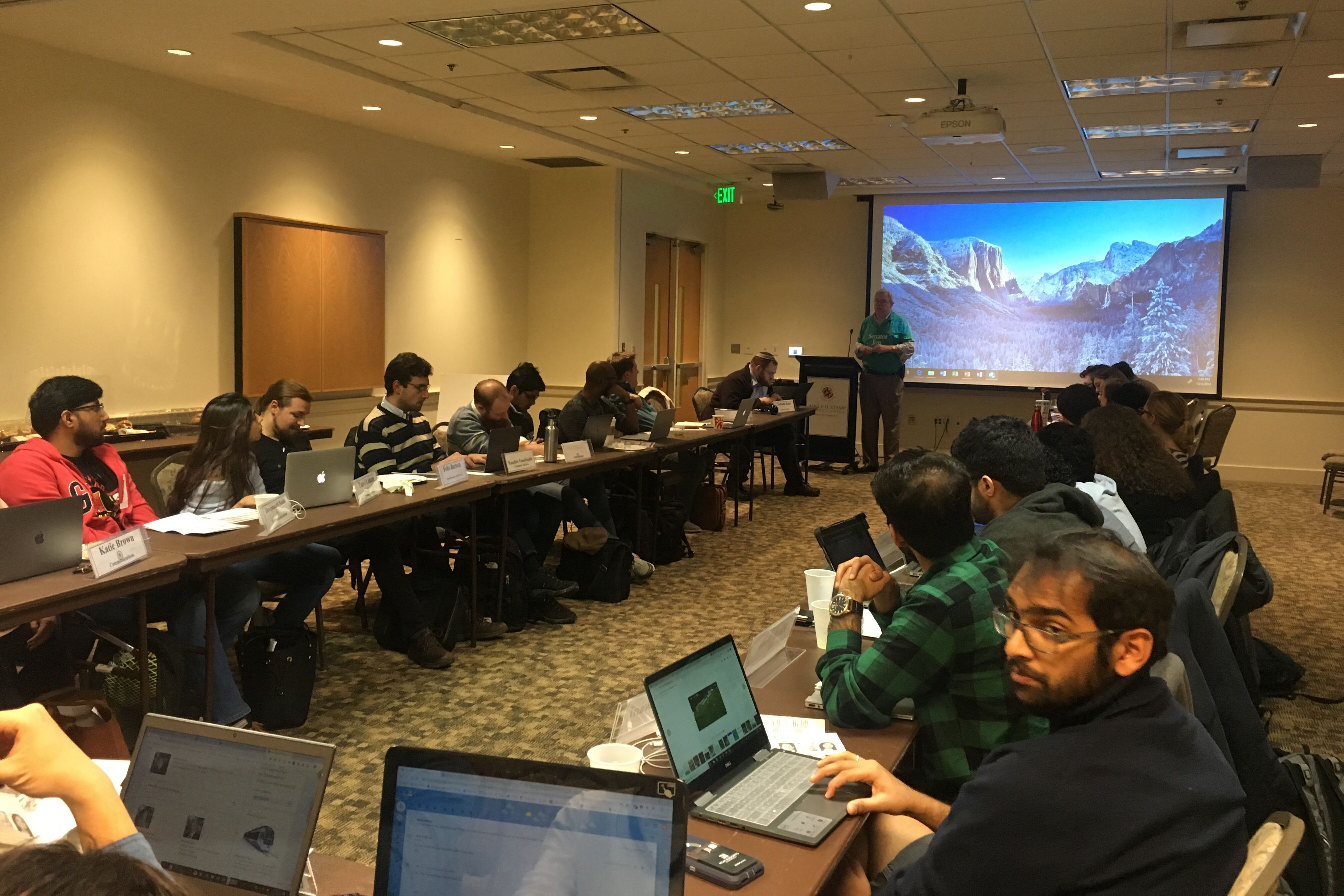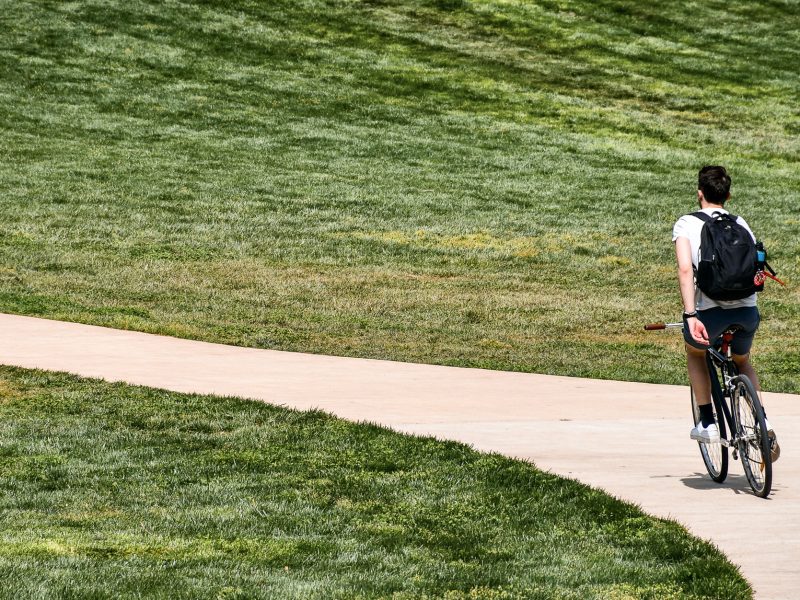Sen. Jim Rosapepe praised University of Maryland President Wallace Loh at a GSG meeting Monday, defending his record in front of a group that, in November, called for the president to remain committed to his unexpected retirement.
“I do not support President Loh retiring in June,” said Rosapepe, who represents Prince George’s and Anne Arundel counties. “I think the regents made him a scapegoat for reasons that are totally not justifiable.”
Loh announced this academic year would be his last at this university in the wake of the Board of Regents’ investigation that found university leadership bore some responsibility for not properly overseeing an abusive football program.
The president initially accepted the board’s recommendations that then-head football coach DJ Durkin and athletic department director Damon Evans would keep their jobs. And The Washington Post reported that the regents made it clear that if Loh didn’t let Durkin stay, they’d replace him with a president who would.
Following this disclosure, Rosapepe was one of eight state representatives to write to the board, supporting the president’s continued tenure at this university.
[Read more: USM officials dodge tough questions from state lawmakers about Maryland football decisions]
Roozbeh Bakhshi, the Graduate Student Government’s legislative affairs vice president, authored a bill in November calling for Loh to leave this university immediately rather than wait until June. Bakhshi was quick to voice his disagreement with Rosapepe’s support for Loh.
He noted that tuition and fees — which are set by the University System of Maryland — have sharply increased since Loh’s tenure as president began eight years ago. Between fiscal year 2010 and the current fiscal year, in-state undergraduate students’ tuition and fees have increased nearly 30 percent, from $8,053 to $10,399, according to this university’s Department of Budget and Fiscal Analysis.
Bakhshi also noted the university’s African-American freshmen enrollment hit its lowest level in decades this fall.
Last semester, this university’s administration also received several letters from accepted black applicants who chose not to attend because of safety concerns. This came after the killing of 2nd Lt. Richard Collins, a black visiting student, on this university’s campus in May 2017.
[Read more: Grad student employees in Maryland won’t get collective bargaining rights this year]
Rosapepe pushed back against Bakhshi, saying that this drop in enrollment shouldn’t be traced back to Loh. The president isn’t the one who looks at applications, and university leadership has made clear that it encourages people of all backgrounds — including African-Americans — to come here, Rosapepe said.
“So why aren’t the numbers showing that?” Bakhshi responded.
Rosapepe replied that applicants have many other choices of schools to attend.
“I think we’re all concerned about this,” he said. “I genuinely don’t see making Loh a scapegoat.”
Communications department representative Katie Brown said she sees Loh’s departure as a chance to usher in new leadership at this university, since it isn’t going in a direction that benefits students.
While Rosapepe acknowledged that he hasn’t always agreed with Loh, the senator called him “by far the best president we’ve ever had” for community development. Loh’s predecessor, Dan Mote, blocked the Purple Line, and Rosapepe said Mote didn’t take action to develop Route 1 or improve public education in College Park, either.
“All of those initiatives generally came from the city, but the only reason they happened was because President Loh committed this university to a partnership with the community,” Rosapepe said.
Brown, noting the group’s disagreement with Rosapepe, added that she hopes graduate student workers can continue working with him to fight for collective bargaining rights.
“If you’re going to encourage President Loh to stick around, then I hope that we can work with you on collective bargaining and encouraging him to do what he has refused to do so far,” Brown said.
The president has previously voiced the University System of Maryland’s opposition to giving graduate student workers collective bargaining rights.
“It’s a fundamental philosophical principle that [graduate student employees] are, first and foremost, students and not employees,” Loh said in February, when the body was pushing for the rights before the General Assembly.
The senator reiterated his support for a bill that gives graduate students these rights. He doesn’t see a path forward for stipend increases for graduate student employees without them.
“I would say collective bargaining would be the game changer,” he said. “That’s not to say I wouldn’t support [stipend increases] outside of collective bargaining, but I think it puts you at a whole different posture, which is why I think it’s important.”



